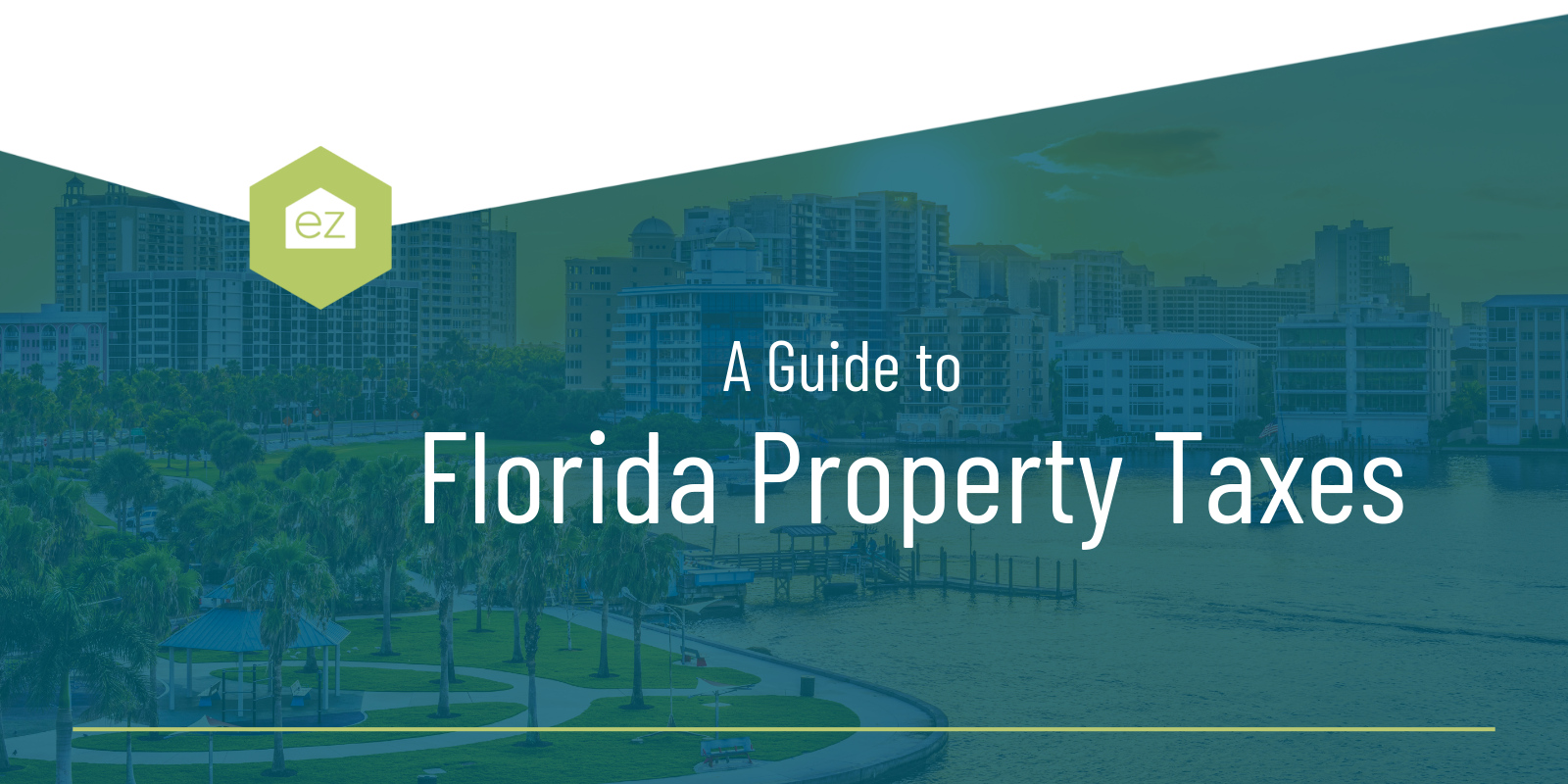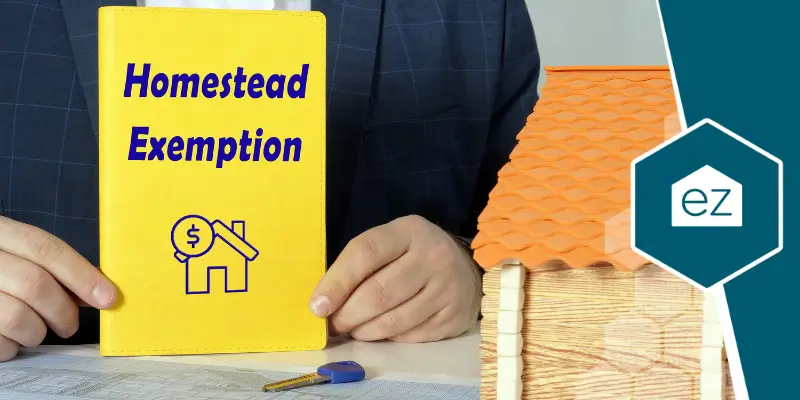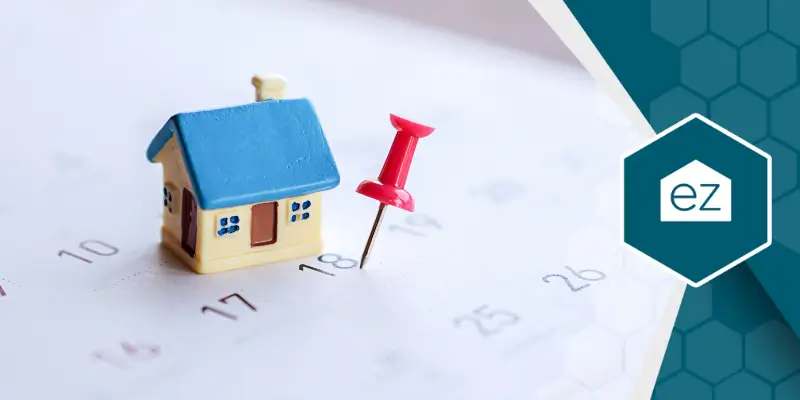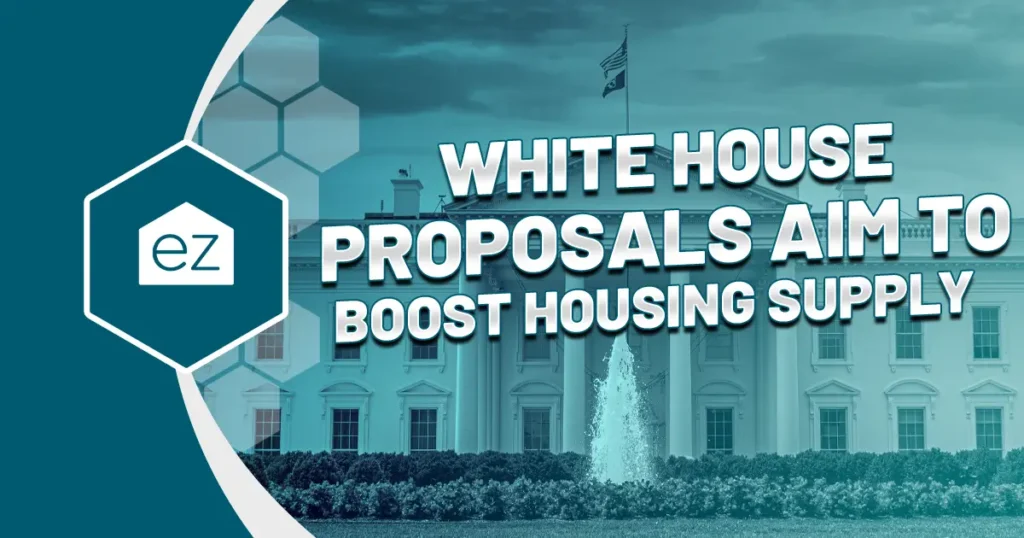A Guide to Florida Property Taxes

Our Guide to Florida Property Taxes
When buying a home, property taxes are just one of the many things you have to factor in. As these increase over time, you need to know how they’ll impact your budget and enjoyment of your home. In Florida, property taxes vary widely from county to county and even within counties. So how do you know how much you’ll pay in property taxes?
Our guide breaks down everything you need to know to understand Florida’s property taxes and gives advice for calculating your tax burden.
About Florida Property Taxes

Florida is one of the few states without a state income tax. One of the ways it makes up for that untapped revenue is through property taxes.
Every Floridian is required to pay property taxes on their home or land. Around 50% of public education and 30% of local government funding is from property taxes. The funds help operate public schools, libraries, medical services, and vital infrastructure.
The local property appraiser sets the tax amount you pay each year, and it is effective from January 1 onwards. It should be noted that only school buildings, churches, and government properties are exempt from paying property taxes in Florida.
Florida property taxes are calculated by the Florida Department of Revenue. The amount of tax you owe depends on the value of your property plus the county and municipality in which it is located.
How Florida Property Taxes Work

In Florida, each county sets its own millage rate, which is used to calculate property taxes. One mil equals $1,000 of value; expressed another way, one mil equals $1. The millage rates are the same across property categories, so a residential property has the same millage as an industrial property. Florida has 640 local governments (county, municipal, school boards, and special districts) that assess a property tax.
The property appraisers in each county set the property’s value based on its anticipated January 1 value. Each property owner is notified in August of the impending tax bill via a yearly Notice of Proposed Property Taxes from the county property appraiser. It has the home’s value and proposed local millage rates. After the local governments have finalized their budget estimates in late October or November, the county tax collector sends a tax bill to each residence.
Property taxes are due the following March 31. Florida homeowners can receive up to 4% off their tax bill by paying early. If the tax payment is late, the local collector sets a Tax Certificate on that property that is sold to investors or debt collectors.
Florida’s Department of Revenue verifies that the information from each local government is accurate, approves its budget, and ensures the taxing rates comply with Florida Truth-in-Millage (TRIM) requirements. One TRIM benefit is it limits the maximum millage rate based on the per capita Florida personal income. In 2019, the maximum millage rate was 1.0339.
To calculate your Florida property taxes, you will need to know the following:
- The assessed value of your property
- The millage rate for your county, city, and/or special district
- Any exemptions or special programs that apply to you
The Florida Department of Revenue determines your property’s assessed value. The millage rate is set by each individual county and may vary from year to year. You can find the millage rate for your county on the Florida Department of Revenue website.
Appealing your home value

You can’t change the millage rate, but you can appeal the appraised property value. You can discuss this directly with the property appraiser’s office or file a petition with the county value adjustment board (VAB).
Each county has a five-member VAB, which reviews and decides on assessment, classification, or exemption challenges. The value adjustment board is not affiliated with the property appraiser or tax collector. Value adjustment boards are unable to modify local governments’ millage rates.
Florida homestead exemptions

Florida homestead exemptions are available to Florida residents who own and live in a home as their primary residence. Florida homestead exemptions remove a portion of the property’s value from taxation, which means you will pay lower taxes on your home.
Potential Florida homestead exemptions are:
- A $25,000 exemption for all homeowners on all property taxes, including school board
- An additional $25,000 exemption on the value from $50-$75K for non-school taxes only
How does the homestead exemption work? Here are a few examples to make it clearer:
Home Assessed Value $50,000
The first $25,000 of value is exempt from all property tax. The remaining $25,000 of value is taxable.
Assessed value $75,000
The first $25,000 of value is exempt from all property tax, the second $25,000 of value is taxable by all parties, and the remaining $25,000 of value is exempt from non-school taxes.
Assessed value $100,000
The first $25,000 of value is exempt from all property tax, the next $25,000 of value is taxable, the third $25,000 of value is exempt from non-school taxes, and the remaining $25,000 of value is taxable.
In addition to primary residence homestead exemptions, Florida has a unique Save Our Homes Benefit exemption.
After the first year a home receives a homestead exemption, it is appraised at its just value. The assessment for each following year may not increase more than 3% or the percent change in the consumer price index (CPI,) whichever is lower.
Florida has additional exemption options for active duty military and veterans. These can include a $5,000 reduction in property assessed value up to a complete property tax exemption. Disabled individuals, spouses of first responders killed in the line of duty, and those renovating their homes to accommodate related seniors also have special tax benefits.
To receive a Florida homestead exemption, you can apply online, by mail, or in person at your county property appraiser’s office.
How Florida property taxes compare

Florida’s property tax rates are relatively low when compared to other states. WalletHub ranked Florida no. 24 in the nation for effective property tax rates in 2021, with the average homeowner paying 0.89% of their home’s value in taxes each year.
For a Florida median home value of $215,300, that translated to paying $1,914 in property taxes. In contrast, the national median tax bill was $2,197.
Of course, what you’ll truly pay for property tax will vary widely across the state and your location. Looking at the average total property tax millage rates in 2021 published by Florida Tax Watch, the highest rates were paid in St. Lucie, Alachua, Broward, and Duval counties. The highest per capita total property tax levies were Monroe ($3,435), Walton ($3,289), and Collier ($3,081) counties.
The lowest per capita total property taxes were in Union ($335), Holmes ($408), and Jackson ($526).
The resource also shows the highest per capita school district property tax levies, and independent special district levies were paid in Walton, Collier, and Monroe counties. The highest municipal taxes were paid in Broward (Fort Lauderdale, Pompano Beach, and Hollywood), Palm Beach (West Palm Beach, Boca Raton, and Jupiter), and Monroe (Florida Keys, Key West) counties.
When are Florida property taxes due?

Florida property taxes are typically due November 1 and become delinquent after March 31 of the following year. Many counties offer an early bird discount of up to 4% for paying a tax bill early; check with the individual county.
Starting April 1, your property taxes are late. County assessors can charge penalties and late fees. For instance, Broward County charges 3% interest plus advertising costs.
Once the property tax is late, a Tax Certificate is filed against the property, which is a lien on the property. This certificate can be auctioned on or before June 1. Interest continues to accrue on the debt until the Tax Certificate is redeemed. The taxpayer must pay it with cash, certified funds, or a wire transfer.
If the debt is unpaid after two years, the Tax Certificate holder can file a Tax Deed Application, and the property can be sold to redeem the investment costs.
Who can help me figure out Florida property taxes?
Your Florida county property appraiser’s office will have the most up-to-date and specific information on your home, exemptions, and tax bill. Some have interactive calculators that allow you to estimate tax bills based on the property address.
The Florida Department of Revenue also provides an overview of Florida property taxes and contact information for each county property appraiser.
Another source for identifying who to contact in the area you’re looking for a house may be your professional real estate agent. They could be aware of discussions at the county or school board level regarding higher taxes or new special assessments. They might also know about school district millage rates and special tax districts for certain areas that interest you.
Let us know if you have any further questions about Florida property taxes. As always, we are here to help with all your real estate needs.
Start Your Home Search
Preston Guyton
Share this Post
Related Articles
Real Estate News
White House Proposals Aim to Boost Housing Supply
Real Estate News
NAR Settlement Set to Reshape The Business of Real Estate
Real Estate News
2023 Reports Increased Demand for New Construction Homes
Real Estate News





